 If you are developing and selling iPhone apps, you may have been wondering: Should I create Android versions?
If you are developing and selling iPhone apps, you may have been wondering: Should I create Android versions?
Is there actually a market for Android apps?
Well, yes there is, but it may be smaller than you think.
In any case, if you are trying to estimate the potential market for an Android edition of your iOS app, do not just look at the Android market share in terms of devices sold.
And don’t even think about judging the market by the number of user requests. 2 words: vocal minority.
The average Android owner is an animal that is completely different from the typical iPhone owner, and not nearly as app-hungry.
Let’s look at some recent market share news and then at my numbers for the Collectorz.com apps for iPhone, iPad and Android.
Android market share
Early this month, Gartner reported about the smartphone market share in Q3 2010:
- iOS market share: 16.7%
- Android market share: 25.5%
So the number of Android devices sold in Q3 is about 50% higher than the iPhone sales. Of course, the iPhone has a significant installed base already, but still, it looks like Android is gaining ground, fast.
Collectorz.com numbers
Here’s my experience with selling apps for iPhone, iPad and Android:
Survey results
In July we did a mobile devices survey to find out if it would make sense to expand our mobile apps development beyond iOS (iPhone and iPad).
Here’s the results of the first question of that survey:
“What kind of mobile device(s) do you own?”:
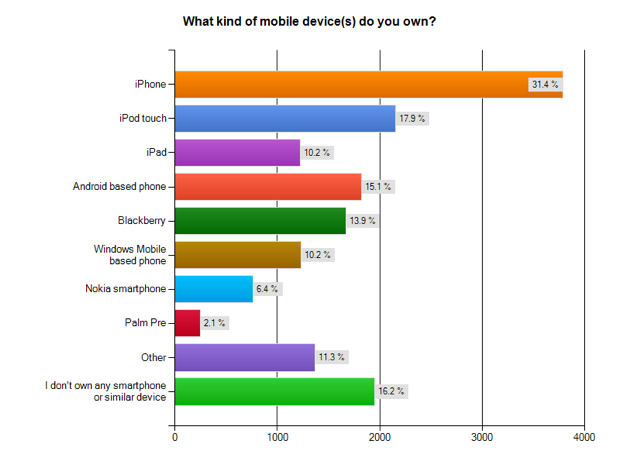
At the time, I already had the feeling that Android people may be quite different from the Apple fans, so the 2nd question in the survery was: “How many apps have you purchased for your device?”. The results for iPhone and Android:
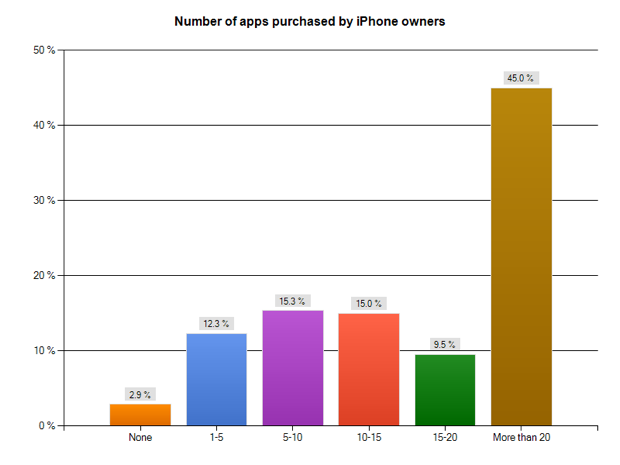
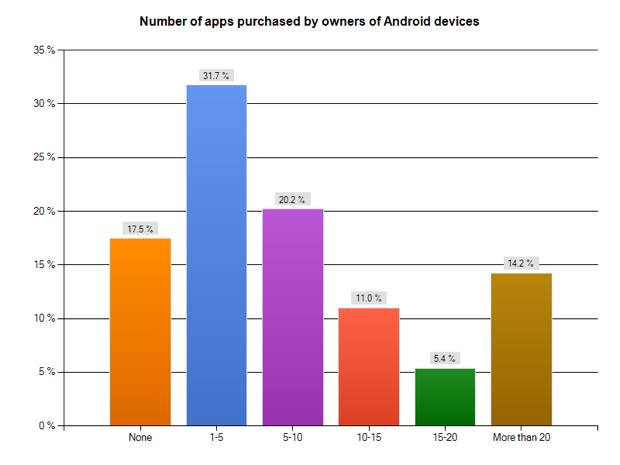
Important numbers from these July 2010 survey results:
- Twice as many iPhones as Android based phones.
- About 50% more Androids than iPads.
- iPhone users buy more apps than Android users.
Android vs iPad : Preview Clubs
So we decided to take the plunge and start development on iPad and Android apps. Then when we were close to completion, we started a Preview Club for both.
(a Preview Club is our name for a pre-release sign-up, where members get more info, sneak preview screen shots and regular updates on our progress).
After a couple of weeks, the size of the Preview Clubs stabilized at these numbers:
- Android Club: 3,286 members
- iPad Club: 3,531 members
Interestingly enough, even though 50% more Collectorz.com users owned Android devices, the iPad owners expressed more interest in actually getting a Collectorz.com app for their device.
Android vs iPad : First week sales
Fast forward a couple of months, to early October when we released our first app for both iPad and Android : CLZ Movies. We pushed both hard, to the respective Preview Clubs and to all Movie Collector owners. And these are the first week sales numbers for both:
- CLZ Movies for Android: 430 sales
- CLZ Movies HD for iPad: 895 sales
More than twice as many iPad apps sold in the first week.
iPhone vs iPad vs Android: number of sales in a “normal” week
Now let’s try and compare the sales numbers for all 3 mobile platform in a normal week, that is, a week where sales are not influenced by new releases, email broadcasts, etc… Here are my numbers for a quiet week in November:
- CLZ Movies for iPhone: 79 sales
- CLZ Movies HD for iPad: 97 sales
- CLZ Movies for Android: 46 sales
Note that the iPad and Android apps are still pretty new and may still be seeing sales from existing Collectorz.com customers responding to the launch. Whereas the iPhone app has been out since May 2009 and hasn’t received an update since Dec 2009…
And still, the iPhone app is out-selling the Android app by 71%. The iPad app is even doing twice as many.
Why are Android users buying less apps?
What is happening here? Why is the average Android user less likely to buy apps for their smartphone?
One reason that I have heard mention in the early Android days is that Android users may be more tech-savvy, Linux-type, open source-loving geeks, convinced that Android apps should be free, just like the OS itself. But I don’t think that is what’s causing the effect I am seeing in my audience.
My guess: the Android OS is now being used on more and more devices, including low-end smart-phones. Nowadays Android-based phones are being sold to a lot of users who may not be the “smart-phone”-type, at least not the app-hungry type.
They just bought a new phone (or got one free with their subscription) that just happened to have the Android OS on it. And thus they are counted in the marketshare figures.
An iPhone user is someone who deliberately chooses an iPhone for its capabilities, the cool user interface, the available apps, etc…. Totally different animal.
So… should you create an Android edition of your iPhone app?
The above may sound like I regret spending the time and money to create Android versions of my iPhone apps. But that’s not the case. Our Android apps are doing great and are generating a nice amount of extra monthly revenue. And looking at the Gartner stats, it will probably only go up from here on. Well worth the development time.
But I must admit that I am a bit disappointed. Judging from the Android hype in the news and the huge amount of requests (read: demands) from users, I was just expecting more sales.
I can’t predict how it will work out for Android ports of your iPhone apps. It completely depends on your audience (business or home-user?), the type of application and whether you are selling your apps as an add-on to your existing customers or as a stand-alone app.
My audience consist of home-users. My apps are niche-apps that I am only selling to my existing customers, which means I do not depend on visibility in the App Store.
For business apps, the Android owners may be just as app-hungry as the average iPhone owner. And for stand-alone apps, the visibility in the Android Marketplace may be better than in the Apple App Store (less apps). Lots of effects at play here.
Anyway, I hope my numbers will give you some insight in the actual market for Android apps, as opposed to the market for Android devices.
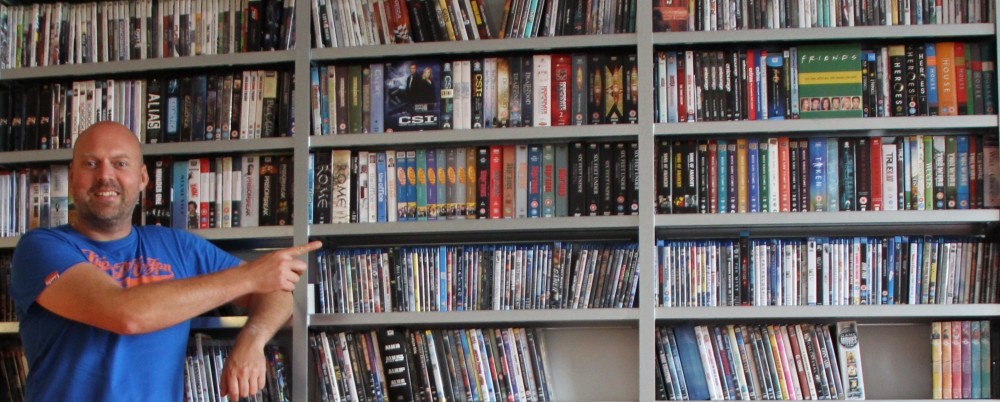
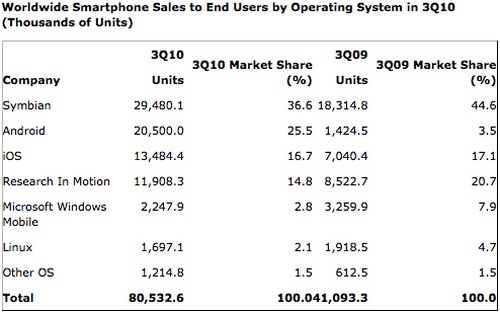
This was the best blog post I have read in 2010. Great work and thanks for sharing.
I hope to release my first android app soon. The iphone version will follow. There is a market. It is just smaller right now. I am convinced that it will grow. As an Android user myself, I have just been tempted to buy games so far.
I deeply feel that my phone is not used to the max, but I have just not found the commercial apps that would really be useful to me right now. I think it is the case for many Android users. I think that we are the kind who actually really need things before we get it.
Thanks again.
Nice stats! Thank you for sharing!
Interesting stats, thanks for sharing.
I totally agree with the fact that quite a number of “Android” users don’t know what OS they run and and don’t care about apps. The first bar on “Number of apps” chart represents that exactly.
Still, Android is not for geeks/open source types only. Quite a few don’t want to pay a premium for Apple sticker on their phone while still interested in new shiny things, myself included. I’ve purchased 2-3 Android apps and definitely buy more if I had an option. There are some free apps on Android that simply don’t have a paid option (Angry birds). I’m sure stats going to change once we see more Android apps.
I’m not surprised by iPad sales stats for your own app. iPad is obviously more movie-optimized than other devices and the most expensive as well. I guess iPad users are simply more likely to spend money.
IMHO on average people who buy iPhone have more money in their pockets than those who buy Android.
Agree with Sergey WRT to iPad sales, most likely device itself is more optimized for your apps.
It will be interesting to see how your apps sales will scale when Android 3.0 tablets start shipping.
Thanks a lot for sharing this and I’m looking forward to see updates in a year. I wonder what Android adoption rate will do to your sales.
Alwin,
would you mind if I translate this post to Russian and publish translation (with your graphics) on http://habrahabr.ru ?
I will add links to this post and add your name as the original post author name.
(sorry, didn’t find your e-mail)
Sure, no problem at all.
Thank you, Alwin.
Just for your information, here is the link to translation:
http://habrahabr.ru/blogs/android/109588/
Interesting post. I’ve heard that Apple’s store accepts payment in more places than Google’s does, which might be a factor at this stage.
I think it does also underline the need for consolidation, with developers writing software once to sell through multiple different scores. The fragmentation in markets is less of a problem than the fragmentation in app technologies.
Great post and very useful information, thanks for sharing this.
We’re right on that point where we need to decide on another platform for our application and HTML5 web app to cover several or cross platform development (titanium ??) are options we are considering.
Robert
http://www.offexploring.com
Good article, I think one of the points you are trying to make about Android is that a lot of people have it without really being aware of it…as in they saw a phone they liked and it just happened to be running Android. App developers have to take this into account as the proportion of owners regularly downloading apps will be smaller than those running iOS.
It’s worth considering though, that a lot of iPhone apps are born out of limitations within the browser…as Android doesn’t have as many limitations with internet browsing, a lot of the apps would not be necessary on Android phones running recent versions of the OS.
Limitations with the browser?
How would that be related? I mean which percentage of iPhone apps are browsers? Must be very very low…
BTW: I’d take the Safari browser over the Android browser any day… Just got me a Galaxy Tab and I hate the slow renderer, slow scrolling and slow zooming… It’s terrible.
IMO getting the basics right is far more important than adding bells and whistles…